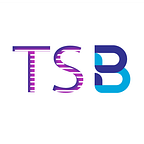Does your startup or business really need to adopt Blockchain? (Part 19)
Welcome to the 19th part of the 100 part series on Blockchain.
Previous parts: 1, 2, 3, 4, 5, 6, 7, 8, 9, 10, 11, 12, 13, 14, 15, 16, 17 and 18.
It is important to understand when you should use Blockchain technology for your startup or business. There are certain criteria that you should keep in mind in order to decide whether it makes sense to start a project with this technology.
1. Number of Intermediaries: If your business is subjected to high costs and work delays because of the involvement of middlemen or intermediaries, then Blockchain is a good fit for your business. With the implementation of Blockchain, these issues can be resolved as it will remove these intermediaries. As a result, it will cut down the high costs of the middlemen and will further expedite the work.
For instance, in the case of the entertainment industry, Blockchain can really prove to be a game-changer. In the entertainment industry, there is a long chain of intermediaries involved between the creative artist and the final consumers of his creation. With the implementation of Blockchain, the artist or the creator will have absolute control over his content, and he can be paid directly, instead of going through a chain of intermediaries, for sharing his creative talent with the world.
2. Secure Database: If you need to manage a database in your business that is fundamentally secure, tamper-proof, and you need to share it with multiple parties, then Blockchain is a good option. Blockchain itself can not be used to store massive data, but Blockchain with IPFS can store and manage data with high integrity. It is also a good approach to avoid data manipulation and perform data exchange in real-time.
For instance, in a business related to supply chain management, multiple stakeholders are involved at various stages of the process, and it also lacks transparency and real-time updates about the consignment. For such a scenario, Blockchain can be a perfect solution. In a Blockchain-based system, stakeholders involved in the supply chain will record the information about the consignment on the Blockchain platform once they receive it. This in turn, will make it feasible to get real-time updates and information about the consignment and the location of a consignment will be clearly visible to all the stakeholders involved throughout its journey.
3. Trust: Another critical point to consider is the trust factor. Trusting other parties is essential when doing business. There could be many reasons why a third party should handle some business data. But, it always creates trust issues due to a lack of transparency. It is because, in a centralized system, malicious and fraudulent actions can be performed easily. Also, the information stored in a centralized system can lead to a single point of failure, and moreover, a centralized database is prone to hacking activities as well. But with the implementation of Blockchain, the issue of a single point of failure can be avoided due to its distributed nature. Further implementation of this technology can even make your business, data, and transactions transparent, tamper-proof, and immutable. In our example of a supply chain business, the implementation of Blockchain technology will make it nearly impossible for any party involved in the process to forge the documents of the consignment or introduce fake products into the supply chain.
4. Collaborations: One of the other crucial criteria to look upon while considering blockchain is the level of collaborations required in your business. If your business requires coordination between a large number of stakeholders, Blockchain can be a great solution.
The concept of creating smart contracts can help in automating collaborations. A traditional contract defines only the terms of a business relationship, but a digitized smart contract also defines conditions under which the contract will be executed. For instance, defining the criteria under which the payment shall be made, and once those conditions are fulfilled, smart contracts automatically release the payment. Thus smart contracts can eliminate the human intervention for payments and play an important role in automating cross-company collaborations.
5. Type of Blockchain: If you agree that your business requires Blockchain technology, it is essential to figure out whether you want to use public or private Blockchain. If you don’t want your confidential data to be public, you have to choose a permissioned or private Blockchain that allows you to keep data private and give access only to specific parties. In such a case, do not opt for open public Blockchains like Bitcoin and Ethereum, where anyone can join the network and access the transactions and data.
If you liked this article and want to know more about Blockchain, NFTs, Metaverse, and their applications, click the below link.
Happy learning!
